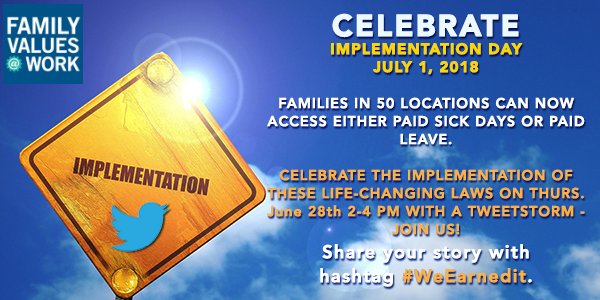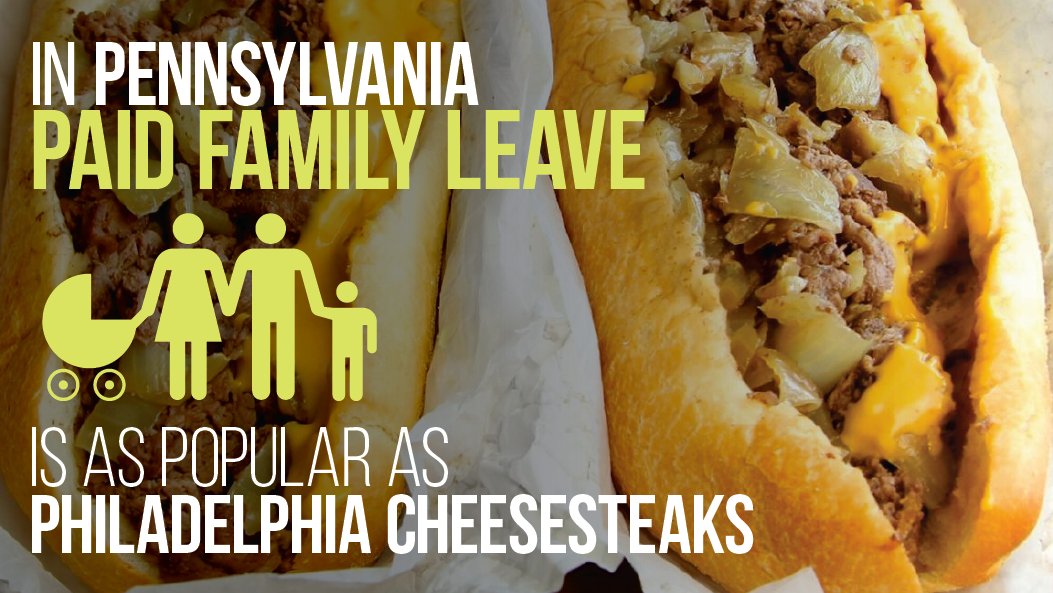We need the FAMILY Act because we need a program that reaches all of us. Newborn or newly adopted children need time to bond with their parents, but those who aren't parents still have parents or partners or other loved ones who occasionally need care. At some point, each of us will likely require time to heal. And those who deploy to the military may need help meeting their family responsibilities. The FAMILY Act covers all these situations. We know that members will be offering some amendments to make it even more effective in reaching those who have the least access to paid leave.
It has been truly amazing to stand with you over the years in our collective fight for working families in Pennsylvania. Let's continue working to make paid family leave a reality.
Take Action:
- Call Congress at 202-224-3121 and enter your zipcode to be connected to your Representative.
- Here's a sample message: "Hi, my name is _______, and I live in the Congressperson's district. I am calling to ask Representative ___________ to cosponsor the FAMILY Act, which lets everyone earn paid family leave at work to care for themselves of a loved one."
- Additional talking points:
- Across our nation, there's one thing families, voters, political leaders and candidates of all stripes agree on: the United States needs paid leave. It's about time we make sure everyone, regardless of where they live or what kind of job they do, can be there for family.
- We need a program that reaches all of us. Newborn or newly adopted children need time to bond with their parents. Even those who aren't parents have parents or partners or other loved ones who occasionally need care. At some point, each of us will likely require time to heal. And those who deploy to the military may need help meeting their family responsibilities.
- FAMILY draws on the successful programs that already exist in multiple states. It speaks to the need of individuals and families for time to care. It will help businesses, especially small ones, keep people employed and cut down on costs for hiring and training new employees.
- The FAMILY Act will benefit our entire nation by making families stronger and more secure. Paid leave is critical to the success of a strong health care system, so people can take the time they need for treatment. It's a vital piece of the infrastructure needed for all of us to succeed.
- Right now only 17% of private sector workers get paid leave through an employer. This reality hurts families, hurts public health and hurts business viability. Many small employers would love to offer paid leave but can't afford to do so on their own - that's why the majority of small businesses surveyed support the FAMILY Act.








